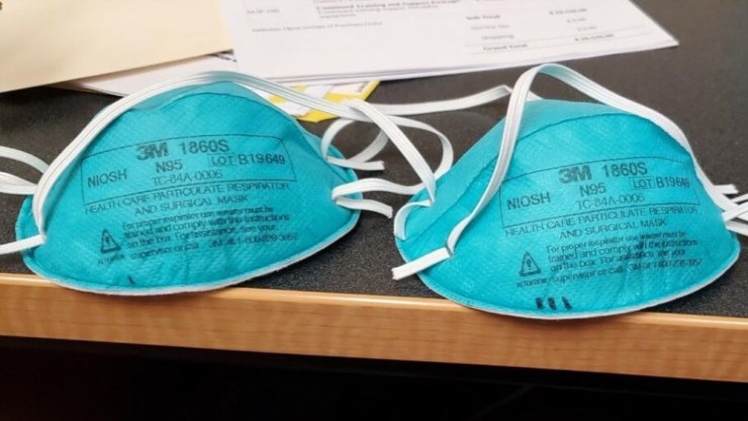Research funded by WHO confirmed what scientists have been saying for months: N95 and additional respirator masks are superior to cloth or surgical masks in safeguarding essential healthcare workers against COVID-19.
The outcome made it clear that the CDC and the World Health Organization ought to recommend that essential workers such as emergency responders and nurses use N95 masks and not just surgical masks. An N95 mask offers 96% protection, whereas the statistic for surgical masks is 67%. Learn more about it.
Why should healthcare workers wear the KN95 face mask?
The virus spreads mainly through droplets expelled once an infected individual sneezes, coughs, talks, sings, breathes. Also, some infections might be caused by individuals coming into contact with a contaminated surface with their eyes, nose, or mouth. Study upon study indicates that the coronavirus also spreads through tiny droplets that are less than 5 microns, referred to as aerosols. (1 micron is 1 millionth of a meter.)
Why should first responders wear a mask?
The majority of public safety personnel – corrections officers, police, paramedics, firefighters, and EMTs – are required by standard, directive, or department policy to use a face mask to decrease the transmission of the virus. According to the CDC, nose- and mouth-covering masks reduce the dispersion of droplets from an infected person, which helps to limit the spread of COVID-19.
Why should meatpacking plants and farmers wear masks?
Meatpacking plants were one of the early hotspots of the pandemic. According to Food and Environment Reporting Network media reports, over 57,493 meatpacking employees were infected with the virus, and more than 284 died.
For farmers, most of the virus guidelines are written with retail, manufacturing, and office type employment in mind…all primarily inside activities in which the exchange of air is restricted by the ventilation systems and structure. Farming absolutely involves indoor activities, yet it also involves times when workers are outdoors or entirely alone. Workers do not have to use a face-covering once they’re working completely alone and do not expect to be in the presence of others. Likewise, workers in the orchards and fields, and spread out from other people more than 6’, do not have to use face coverings. It is an excellent idea for all workers to have a facial covering on their person for such times when they’re near others.
How to avoid getting infected
Standing over 3’ away cuts the transmission risk to 3% from 13%. Using masks decreases the chances of infection to 3% from 17%, and eye protection to 6% from 16%. People also should continuously wash their hands frequently.
In addition to the tips mentioned above, the use of a KN95 face mask is also highly recommended:
- KN95 face mask provides 95 percent protection against all particles higher than 0.3 µm in diameter
- The KN95 face mask has a 3-dimensional foldable design, nosepiece/nose bridge, earloops and offers exceptional sealing and fitting.
- KN95 face mask features 5-layer protection and is skin-friendly (does not cause skin irritation and rashes).
- Presently approved by the World Health Organization as a safety step from the virus, citizens, patients, and healthcare providers.
The proof is solid enough to warrant changes to suggestions for essential health care employees and a strategy to keep mass-producing N95 masks.

